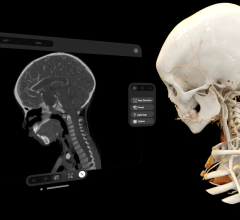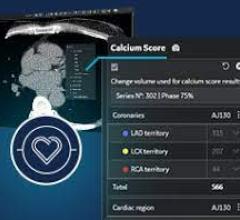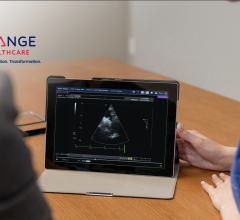By Dave Fornell, editor
Stage 2 meaningful use guidelines for electronic medical records (EMRs) suggest use of clinical decision support (CDS) software to help clinicians choose appropriate labs, diagnoses, therapies and imaging exams. A draft policy to replace the sustainable growth rate (SGR) formula now being considered by the a joint U.S. Senate Finance and House Committee on Ways and Means Committee might make this suggestion a requirement in the future. The draft policy would deny Medicare payment for the exam if the ordering physician did not consult appropriateness criteria and require prior authorization for outlier providers whose ordering is inconsistent with that of their peers.
Growing Advocacy for Clinical Decision Support
The American College of Radiology (ACR) applauded the proposal in early November. “This landmark step by Congress is a validation of a cornerstone of the College’s Imaging 3.0 initiative that increases quality of imaging care and preserves healthcare resources,” said Paul Ellenbogen, M.D., FACR, chair, ACR Board of Chancellors. “We strongly urge Congress to follow this approach which helps medicine transition from volume-based to quality-based care without interfering in the doctor-patient relationship.”
The policy draft would require the Secretary of the Department of Health and Human Services to specify appropriateness criteria from among those developed/endorsed by national professional medical specialty societies. The secretary must also identify mechanisms, such as clinical decision support (CDS) tools, by which ordering professionals could consult these appropriate use criteria (AUC) CDS systems in Minnesota and at Massachusetts General Hospital have been shown to cut down on duplicate and/or unnecessary scanning and their associated costs.
Studies show that imaging exams reduce unnecessary hospital admissions, shorten length of stay and are directly linked to greater life expectancy. ACR said Medicare imaging use and imaging costs are down significantly, the same levels as it was in 2003, and that imaging is the slowest growing of all physician services among the privately insured. ACR contends the use of appropriateness criteria can help streamline the ordering of these services.
Predicting Rapid Adoption of CDS
If this policy is enacted, and it appears to be that it would be a no-brainer decision to help cut the staggering costs of Medicare, I predict it will result in a rapid explosion in and adoption of new CDS systems.
Challenges and a Future Concept for Gathering Data
This software is not widely offered by PACS, CVIS or EMR vendors currently because it is difficult to keep up-to-date with the latest data from multiple societies, clinical trials and studies regarding all specialties. To stay current, vendors will have to issue a large number of updates each year, including rapid software revisions each time societies update their AUC. For this reason, AUC/CDS software might be best managed as a Web/cloud-based application. This would enable regular updates for all users at the same time, rather than attempting to update hundreds of individual hospitals managing their own version of the software.
Another approach to AUC/CDS is being pioneered by IBM Research and the Cleveland Clinic Lerner College of Medicine of Case Western Reserve University. In October IBM unveiled two new Watson artificial intelligence cognitive technologies that can gather the most relevant data from the Internet immediately and present the most up-to-date recommendations to physicians. In this way, instead of maintaining a specific software program with a constant flow of new data, the new data is harvested off the Internet at the time of a query.
The projects are known as WatsonPaths and Watson EMR Assistant. With the WatsonPaths project, IBM scientists have trained the system to interact with medical domain experts in a way that's more natural for them, enabling the user to more easily understand the structured and unstructured data sources the system consulted. Due to the nature of the Internet and it offering both good and bad information, the Watson system can show the pathways it took in offering an option it chose from the Web. The Watson EMR Assistant project aims to enable physicians data mine key information from patients' medical records in order to help improve the quality and efficiency of care.



 December 23, 2025
December 23, 2025 









